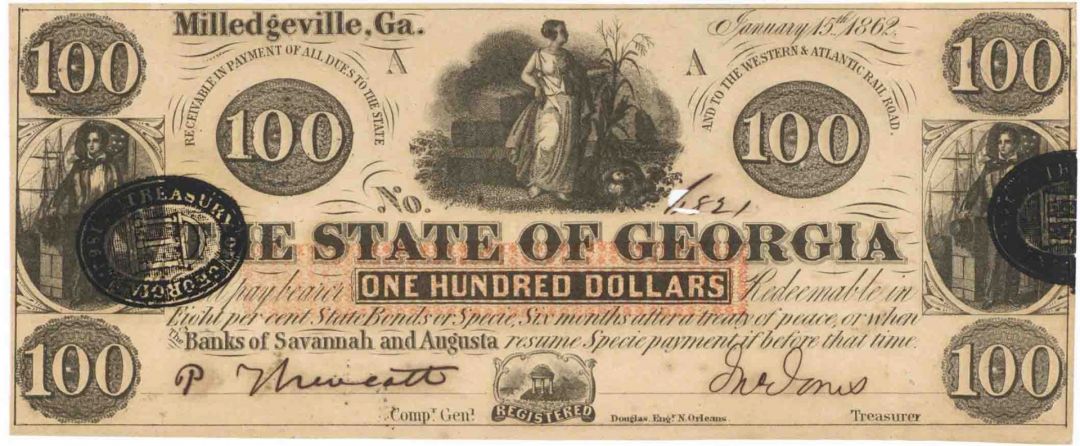The State of Georgia - Obsolete State Currency - Banknote dated 1862
Inv# OB1244 Paper MoneyCondition in A.U.+ with minor flaw. A banknote—also called a bill (North American English), paper money, or simply a note—is a type of negotiable promissory note, made by a bank or other licensed authority, payable to the bearer on demand. Banknotes were originally issued by commercial banks, which were legally required to redeem the notes for legal tender (usually gold or silver coin) when presented to the chief cashier of the originating bank. These commercial banknotes only traded at face value in the market served by the issuing bank. Commercial banknotes have primarily been replaced by national banknotes issued by central banks or monetary authorities.
National banknotes are often – but not always – legal tender, meaning that courts of law are required to recognize them as satisfactory payment of money debts. Historically, banks sought to ensure that they could always pay customers in coins when they presented banknotes for payment. This practice of "backing" notes with something of substance is the basis for the history of central banks backing their currencies in gold or silver. Today, most national currencies have no backing in precious metals or commodities and have value only by fiat. With the exception of non-circulating high-value or precious metal issues, coins are used for lower valued monetary units, while banknotes are used for higher values. Read more at https://en.wikipedia.org/wiki/Banknote











Ebay ID: labarre_galleries